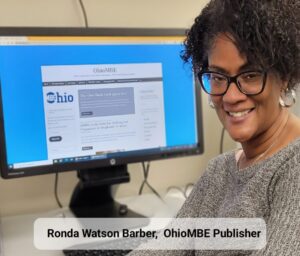By Ronda Watson Barber | Publisher, OhioMBE
As I continue to advocate for the inclusion of Black-owned businesses in Columbus City Schools’ purchasing operations, I have one lingering question: Where are the Black churches?
For the past few years, the former president of the Columbus branch of the NAACP was a consistent and vocal watchdog, regularly attending school board meetings and questioning the district’s spending practices — especially around local and Black business inclusion. Their leadership demanded accountability and pushed for transparency in how public dollars were being spent.
But that voice has gone silent.
Following unfounded allegations and internal politics, the national NAACP shut down the local branch office. No more questions. No more pressure. No more presence.
So I ask again — who is advocating for Black business inclusion in Columbus today? Because right now, it seems no one has stepped forward.
And while I’m at it, let me ask another question that’s been sitting on my heart:
Where are the city’s Black pastors?
Black churches are always full when politicians need a pulpit during campaign season. They come with empty promises and photo ops, knowing they’ll be welcomed with open arms. But once they get elected, where’s the follow-up? Where’s the accountability?
Black pastors in this city will rally outside of a high school to protest closures. They’ll stand in front of the board building for media soundbites. But when it comes to publicly advocating for Black business inclusion in a district that now has an extra $100 million per year, they fall silent.
They never show up at board meetings to speak on the public record. They never submit written testimony. They don’t organize community briefings on district spending. And yet, our churches sit in neighborhoods that desperately need economic opportunity — opportunities that could come through supplier contracts, jobs, and reinvestment.
Columbus City Schools isn’t just failing our children — it’s failing our businesses. And too many so-called leaders are standing by silently.
I’m not here to attack the Black church. I’m a product of it. But I am here to challenge it. If we believe in economic justice, then we must speak boldly — not just from the pulpit, but from the podium at public meetings.
The time for silence has passed. If the church can host the politicians, it should also hold them accountable. If you’re called to lead, then lead on the issues that impact your people’s lives — including how public dollars are spent in your community.
I’m still showing up. I’m still speaking out.
But I shouldn’t be the only one.
just my thoughts…rwb
Discover more from OhioMBE
Subscribe to get the latest posts sent to your email.
